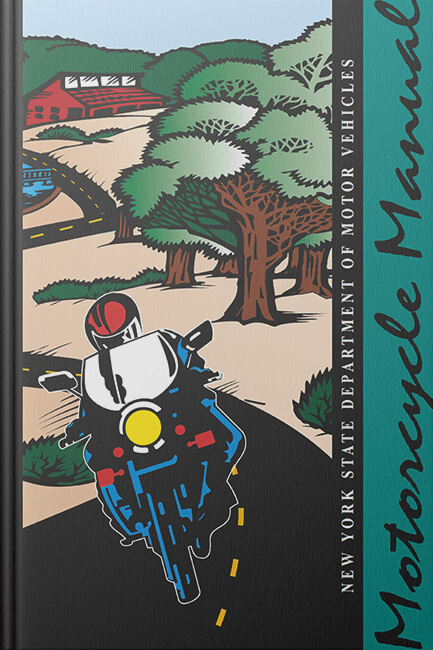
New York Motorcycle Manual
There are over 240,000 motorcyclists in the state of New York who use their vehicles for commuting, touring and other recreational activities.
Motorcycling is quickly becoming a popular choice for economic and convenience reasons.
The New York State Motorcycle Safety Program, coordinated by the state Department of Motor Vehicles, has put out a Motorcycle Manual designed to help beginner and experienced drivers alike. The manual ensures that you’ll be able to pass the motorcycle knowledge test, as well as teaching safe riding techniques.
The New York Motorcycle Manual is available below and you will find it divided into six main sections:
- Motorcycle Licenses, Ownership, Special Rules
- Preparing to Ride
- Riding Within Your Abilities
- Being in Shape to Ride
- Earning Your License
- Motorcycle Safety Program
Motorcycle Licenses, Ownership, Special Rules
This section of the manual discusses the legal requirements for operating a motorcycle in the state of New York. Operators will need to have a valid Class M (motorcycle) license, or a Class MJ (junior operator) license. It also discusses the procedures for registration, inspection and insurance for the motorcycle.
Preparing to Ride
Pre-ride protocol requires all good riders to wear the right gear, become familiar with their motorcycle, check all motorcycle equipment and be a responsible rider. Required gear includes an approved helmet, face/eye protection and protective clothing.
Riding Within Your Abilities
This section represents the bulk of the New York Motorcycle Manual. It discusses a wide variety of practical tips and strategies for safe, responsible riding, including:
- Basic vehicle control
- Keeping your distance from other vehicles
- Handling intersections
- Increasing conspicuity
- SEE (search, evaluate, execute)
- Avoiding crashes
- Handling dangerous surfaces
- Mechanical problems
- Animals
- Flying objects
- Getting off the road
- Carrying passengers and cargo
- Riding with a group
Being in Shape to Ride
This section discusses the hazards of mixing alcohol and other drugs with motorcycle operation. It talks about legal blood alcohol limits in the state of New York, and the consequences of conviction of driving under the influence. This section also explores the impact of fatigue on your judgement as a rider.
Earning Your License
This section details the knowledge and skills tests, which are essential steps in getting your motorcycle license (Class M or Class MJ).
Motorcycle Safety Program
According to the Motorcycle Safety Foundation (MSF), a national not-for-profit organization dedicated to safe and responsible riding, many riders never learn the critical skills they need to ride safely. For this reason, the MSF offers professional motorcycle training for both beginning and experienced riders. These courses teach riders how to deal with traffic situations in the real world, helping to develop skills and improve on existing abilities. Practical training is certainly something to consider if you are preparing for your motorcycle test.